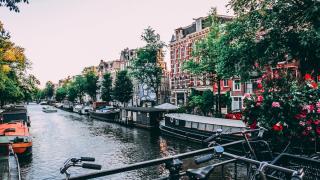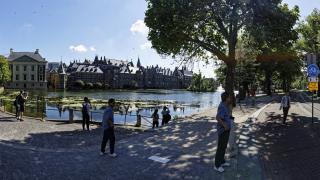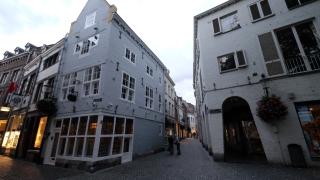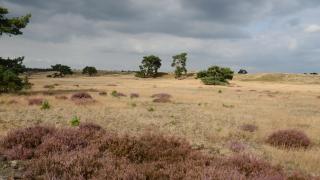Public transport in the Netherlands is highly integrated and efficient.
- NS trains connect all major cities. Intercity trains run every 10-15 minutes on main routes. Amsterdam to Rotterdam takes 40 minutes.
- Local buses, operated by companies like Arriva and Connexxion, serve towns and rural areas. Most run every 15-30 minutes.
- Trams are common in cities like Amsterdam, The Hague, and Rotterdam. They run from early morning until midnight.
- Metros operate in Amsterdam and Rotterdam. Amsterdam Metro lines M50-M54 cover the city and suburbs.
- The OV-chipkaart is used for all public transport. A single Amsterdam tram ride costs €3.40 (2024).
- Night buses (nachtbus) run in larger cities after regular hours.
- Schiphol Airport has direct train links to major cities. Travel time to Utrecht is 30 minutes.
- Most stations have real-time digital timetables. Delays are rare, usually under 5 minutes.
- Public transport connects tourist sites like Keukenhof, Zaanse Schans, and Kinderdijk.
Coverage is dense: over 400 train stations and thousands of bus stops nationwide.
Railways at a Glance
Nederlandse Spoorwegen (NS) operates most intercity and regional trains in the Netherlands. Regional lines are also run by Arriva, Keolis, Qbuzz, and Connexxion.
Types of trains:
- Intercity: Fast, limited stops. Connects major cities like Amsterdam, Rotterdam, Utrecht, and The Hague.
- Sprinter: Local trains. Stops at smaller towns and suburbs.
- International: Direct trains to Belgium (Brussels), Germany (Berlin), and France (Paris) via Thalys, Eurostar, and ICE.
Ticketing:
- Tickets are available at yellow NS machines in stations, service counters, or via the NS app.
- The OV-chipkaart is a reusable smart card for all Dutch public transport. Load credit at stations or supermarkets.
- Single-use paper tickets and e-tickets (QR code) are also available. E-tickets must be printed or scanned from a smartphone.
- A one-way Amsterdam–Rotterdam Intercity ticket costs about €17.90 (2nd class, 2024).
Using trains:
- Trains run from early morning (around 5:30) until midnight. Night trains operate on main routes.
- Major hubs: Amsterdam Centraal, Utrecht Centraal, Rotterdam Centraal, Den Haag Centraal.
- Frequent connections to Schiphol Airport, Eindhoven, Groningen, and Maastricht.
- Most journeys between major cities take 30–60 minutes.
Check in and out with your OV-chipkaart at station gates.
Urban Mobility: Trams, Metros, and Buses
Dutch cities offer dense urban transport networks.
- Amsterdam: GVB operates trams, metro, and buses. 15 tram lines, 5 metro lines, 40+ bus routes.
- Rotterdam: RET runs metro (5 lines), trams, and buses. Metro connects city center to suburbs and airport.
- The Hague: HTM operates 12 tram lines and 8 bus lines. Trams serve city and beach areas.
- Utrecht: U-OV runs buses and a light rail (tram) to suburbs and Science Park.
Using public transport:
- All cities use the OV-chipkaart (prepaid smart card). Single tickets and day passes are available at stations and machines.
- OV-chipkaart costs €7.50 (non-refundable). Load credit or buy travel products. Single rides: €3-€4.50. Day tickets: €8-€9.50.
- Check in and out by tapping your card at gates or readers. Fines for not checking in/out.
Schedules and navigation:
- Trams and metros run every 5-10 minutes during the day. Buses every 10-15 minutes.
- Use the 9292 app or NS Reisplanner for real-time schedules and route planning.
- All vehicles are accessible for wheelchairs and strollers. Stops are announced in Dutch and English.
Essential Travel Tools
Key travel apps:
- NS app: Official for Dutch trains. Buy tickets, plan journeys, get platform info. English available.
- 9292: Covers all Dutch public transport—trains, trams, buses, metro. Real-time route planning. English interface.
- Google Maps: Accurate for Dutch transit. Shows live departures and transfer times.
Real-time updates:
- NS app and 9292 send push notifications for delays or disruptions.
- Digital screens at stations show live departure times and platform changes.
Language tips:
- Ticket machines and apps offer English, Dutch, and sometimes German or French.
- Look for “Engels” or flag icons to switch language.
Finding help:
- NS service desks are at major train stations. Staff speak English.
- Blue “i” signs mark information points in stations.
- GVB, RET, and HTM have help desks in Amsterdam, Rotterdam, The Hague.
Other tips:
- Free Wi-Fi is available at most large stations.
- Most apps require Dutch or international credit/debit cards for payments.
Smart Strategies for Travelers
Peak hours: Trains and metros are busiest 07:00-09:00 and 16:30-18:30. Avoid these times for more space.
Ticket options: Use an OV-chipkaart for all public transport. Single-use cards cost €1 extra. Day passes are available in major cities (e.g., Amsterdam GVB 24-hour ticket: €9.00). NS offers a Group Ticket (Groepsticket) for 2-7 people, from €7.15 per person for off-peak travel. Holland Travel Ticket (€70 anytime, €48 off-peak) covers all trains, trams, buses, and metros nationwide for one day.
Luggage and bikes: Luggage is allowed, but keep aisles clear. Bikes require a separate ticket on trains (€7.50/day, not allowed during rush hours). Folding bikes are free. Most stations have elevators and ramps for accessibility.
Etiquette: Stand on the right on escalators. Let passengers exit before boarding. Keep noise low. Validate your ticket on entry and exit.
Disruptions: Check the NS app or 9292 for updates. Missed connections? Staff at Servicebalie desks can help rebook. Delays over 30 minutes may qualify for partial refunds.
Quick Reference: Getting Around with Ease
Checklist for first-time users:
- Check route with 9292 or NS app before travel.
- Always check in and out with your OV-chipkaart.
- Buy an anonymous OV-chipkaart at stations (€7.50, valid 5 years).
- Single-use tickets available at machines, but cost more.
- Most trams and buses accept contactless debit/credit cards (OVpay).
- Children under 4 travel free. Kids 4-11: Railrunner ticket (€2.50/day on trains).
- For help: look for "Service & Tickets" desks at major stations.
- In emergencies, use the SOS button on station platforms or call 112.
- Night buses run in major cities, but limited frequency.
- Always validate your ticket before boarding.
- Fines for not checking in/out start at €50.
- Lost property: contact NS or local operator.
- Keep your OV-chipkaart topped up to avoid delays.












